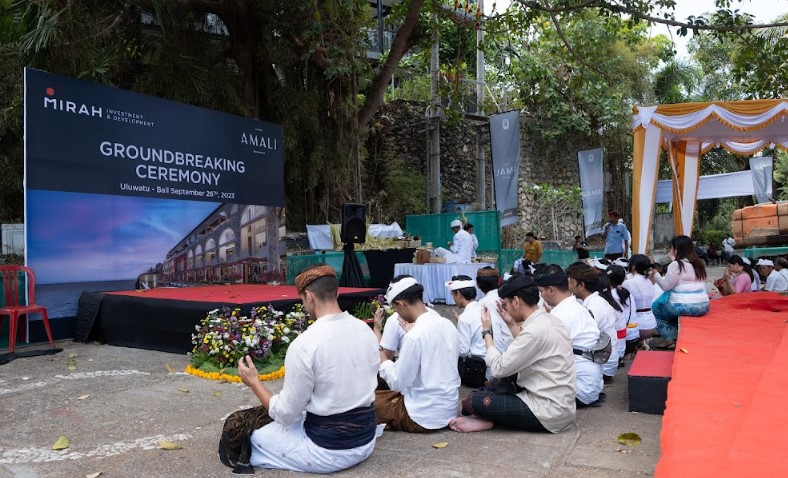Hi, China Watchers. This week we look ahead to Secretary of State Antony Blinken’s Feb. 5-6 Beijing trip, unpack the sudden surge in warnings about a looming U.S. conflict with China and mark the anniversary of the death of China’s now-revered Covid whistleblower, Li Wenliang. We’ll also probe the whereabouts of vanished Chinese tennis star Peng Shuai and profile a book that argues that the once-popular narrative of China’s peaceful evolution toward freedom and democracy was nothing less than a deception by foreign politicians and pundits.
Let’s get to it. — Phelim
Secretary of State ANTONY BLINKEN will travel to Beijing this weekend to test whether the Chinese government’s recent shift to a softer diplomatic tone could translate into actual concessions on issues including counternarcotics cooperation and the release of unjustly jailed Americans in China.
Blinken’s much-anticipated Feb. 5-6 China trip is a follow-up to President JOE BIDEN’s meeting with Chinese paramount leader XI JINPING in Bali in November. Biden pledged then to “maintain open lines of communication” with Beijing despite worsening bilateral tensions.
Suspicions about China’s rapidly modernizing military prompted a senior U.S. Air Force officer to predict in a memo published last week that the two countries are heading for military conflict over Taiwan as early as 2025. (More on that in Translating Washington below)
But don’t expect any breakthroughs on key contentious issues. A big chunk of Blinken’s two days of meetings with Chinese Foreign Minister QIN GANG will be lost to ritual recitations of respective U.S.-China positions on issues ranging from Taiwan and trade tensions to concerns about Beijing’s human rights record, its growing nuclear arsenal and its alignment with Russia’s war on Ukraine.
Battle of the Buzzwords. Qin will frame Beijing’s critique of U.S. policy toward China with familiar foreign ministry buzzwords including “cold war mentality,” “zero-sum game” and “bloc politics.” Blinken will parry by invoking the Biden’s administration’s conception of the “rules-based international order,” and the need for “guardrails” in the bilateral relationship so it doesn’t “veer into conflict.”
That will constitute a multi-hour dialogue of the deaf that will test both sides’ ability to avoid the kind of rancorous posturing that derailed Blinken’s first meeting with Qin’s predecessor, WANG YI, in Anchorage, Alaska in March 2021. The measure of the meetings’ success may well boil down to the degree to which both sides can emphasize cordiality over confrontation.
“Neither side is prepared to back off on its fundamental positions or to change its behavior, so we shouldn’t expect a breakthrough,” said DANNY RUSSEL, former assistant secretary of State for East Asian and Pacific affairs and vice president for international security and diplomacy at the Asia Society Policy Institute.
Charm offensive challenge. Qin has signaled he wants Blinken’s visit to improve ties. In a farewell tweet last month Qin praised past “candid, in-depth and constructive meetings” with Blinken and said he anticipated “continuing close working relations with him for a better China-US relationship.” That suggests that Beijing at the very least wants to stem the slide in bilateral ties that has prompted the U.S. to restrict exports of microchips used in advanced computing and military applications and to deepen its military alliance with China’s archrival Japan.
Pulling off a meeting that doesn’t conclude with just strained smiles and a vague pledge for future meetings will require the two sides to think creatively. But striking some sort of deal — even minor — could boost the Chinese government’s domestic narrative that China is a rising superpower that the U.S. needs as much, if not more, than China needs the U.S.
“The fact that Blinken is traveling to Beijing is the entire point—to show the Chinese people that the U.S. is the supplicant because we’re coming to them,” said DAVID R. STILWELL, former assistant secretary of state for the Bureau of East Asian and Pacific Affairs.
Drugs and hostages. Qin’s diplomatic low-hanging fruit would be to lift the suspensions on high level bilateral contacts — particularly for counternarcotics cooperation — that Beijing imposed in August in reprisal for then-House Speaker NANCY PELOSI’s Taiwan trip. Synthetic precursor chemicals produced in China and shipped to Mexican cartels that process it into fentanyl-like synthetic opioids are killing tens of thousands of Americans every year. Addressing the opioid overdose crisis is one of Blinken’s “top priorities,” director of the Office of National Drug Control Policy, RAHUL GUPTA, said last month.
Reviving counternarcotics cooperation would benefit Blinken as he faces pressure from both Republicans and Democrats on Capitol Hill to prod Beijing to stem the flow of those precursor chemicals. Rep. DAVID TRONE (D-Md.) urged Blinken to make the issue a top priority in his Beijing meetings in a letter last month. Blinken “must address China’s role in the production of the precursor chemicals for fentanyl,” Sen. MARCO RUBIO (R-Fla.) said in a statement last week.
Beijing could also signal a desire for better bilateral ties by releasing one or more of the high-profile U.S. citizens deemed unjustly jailed in China. They include MARK SWIDAN, KAI LI and DAVID LIN, all three of whom the State Department’s office of the special presidential envoy on hostage affairs designates as “wrongful detainees.”
There’s political capital in freeing those detained Americans. Sens. TED CRUZ (R-Texas), JOHN CORNYN (R-Texas) and Rep. MICHAEL CLOUD (R-Texas) introduced a Senate Resolution on Wednesday calling on the Biden administration to “deepen and prioritize efforts” to secure Swidan’s release. A group of 14 GOP senators including CHUCK GRASSLEY (R-Iowa), MARSHA BLACKBURN (R-Tenn.) and LINDSEY GRAHAM (R-SC) urged Blinken to make clear to his Beijing hosts “that the United States will not cooperate with a regime that uses hostages as bargaining chips,” in a letter sent on Wednesday.
But there are pervasive doubts among former China-focused State Department officials whether Blinken can make substantive progress on any bilateral issues with just two days in Beijing.
“Diplomacy takes time in the best of circumstances, which these are not,” said SUSAN THORNTON, former acting assistant secretary of State for East Asian and Pacific Affairs and visiting lecturer in law at the Yale Law School Paul Tsai China Center. Blinken’s visit may only “keep relations from getting worse, which both have indicated they desire, but appear unwilling to implement,” Thornton said.
(Watch out for my deeper dive into Blinken’s Beijing trip later this week!)
TRANSLATING WASHINGTON
— JEFFRIES NAMES DEMOCRATS TO SELECT CHINA COMMITTEE: House Minority Leader HAKEEM JEFFRIES announced on Wednesday the 11 Democrats who will sit on the House Select Committee on the Strategic Competition between the U.S. and the Chinese Communist Party under committee chair Rep. MIKE GALLAGHER (R-Wis.). Jeffries appointed Rep. RAJA KRISHNAMOORTHI (D-Ill.) as ranking member. Other Democratic committee choices include Reps. RO KHANNA (D-Calif.), ANDY KIM (D-N.J.)and HALEY STEVENS (D-Mich.). We’ll highlight the Dem committee members’ China priorities next week. Read my profile of the committee’s GOP members here.
— U.S. REOPENS EMBASSY IN SOLOMON ISLANDS: The State Department has reopened the U.S. embassy in the Solomon Islands 30 years after President BILL CLINTON shuttered it. That “underlines the strength of our commitment to our bilateral relations, the people of Solomon Islands, and our partnerships in the Indo-Pacific region,” Secretary of State Antony Blinken said in a statement on Wednesday.
The re-opening is part of the Biden administration’s efforts to renew engagement in a region where the U.S. and its allies are viewed as being in retreat amid a relentless Chinese diplomatic advance. Administration concerns about Solomon Islands have soared following Beijing’s sealing of a security pact with the country in April that may pave the way to the creation of a Chinese military base.
“Over the past 30 years, the U.S. has allowed its relationship with the Solomon Islands to atrophy to the detriment of all, except China,” PATRICIA O’BRIEN, professor of history in the Asian Studies Program at Georgetown University and an expert on Pacific Island Countries, told China Watcher.
— BIDEN MULLS HUAWEI-TARGETED EXPORT CURBS: The Biden administration is about to slam the door on new licenses for U.S. companies to export to Huawei — the Chinese telecom firm that has been subject to trade restrictions for years, POLITICO’s GAVIN BADE reported on Tuesday (for pro subscribers). The decision was first reported by Bloomberg and the Financial Times. Chinese Foreign Ministry spokesperson MAO NING said on Tuesday that Beijing is “gravely concerned” by the possible restrictions.
— GOP LAWMAKERS TRUMPET CHINA WAR RISK: That memo from U.S. Air Force Gen. MIKE MINIHAN — which warned that a U.S.-China conflict over Taiwan looms as early as 2025 — has prompted echoes of agreement among senior GOP House members.
“I hope he’s wrong…but I think he’s right,” Rep. MICHAEL MCCAUL (R-Texas), chairman of the House Foreign Affairs Committee, told Fox News on Sunday.
Rep. MIKE WALTZ (R-Fla.), chairman of the House Armed Services Subcommittee on Readiness, is also a Minihan fan. Waltz declared on Tuesday that the Minihan memo was “spot on” and praised it for “the type of mentality that we need our soldiers to see and that we need the Chinese Communist Party to see.”
Some retired U.S. military officers offered less flattering assessments of Minihan’s foresight. “War with China is neither imminent nor inevitable, unless America lends too much credence to wannabe warrior-generals who profit from rampant threat inflation,” U.S. Air Force Ret. Lt. Col BILL ASTORE, an Eisenhower Media Network fellow, said in an email statement on Tuesday.
— CZECH REPUBLIC SIGNALS CLOSER TAIWAN TIES: The newly-elected president of the Czech Republic, PETR PAVEL and Taiwan’s President TSAI ING-WEN committed to “strengthening our partnership” in a call on Monday, Pavel said in a tweet. The call constituted a “serious interference in China’s internal affairs,” Mao at the Foreign Ministry said on Tuesday.
— NATO CHIEF WARNS CHINA MENACES EUROPE: North Atlantic Treaty Organization Secretary General JENS STOLTENBERG warned that China poses an emerging military threat to Europe. China’s buildup of its military forces and its alignment with Russia put Beijing “much higher on the NATO agenda and matters for our security,” Stoltenberg said in a speech in South Korea on Monday. “NATO has … fabricated ‘China threats,’” the Foreign Ministry’s Mao said on Wednesday.
— JAPAN, NETHERLANDS TO RESTRICT CHIP EXPORTS: The governments of Japan and the Netherlands have agreed to restrict exports on high-tech semiconductor exports in line with a U.S. prohibition imposed in October, Bloomberg reported last week. That constitutes “bullying and hegemonic practices,” Mao at the Foreign Ministry said on Tuesday.
— COVID WHISTLE BLOWER LI WENLIANG REMEMBERED: Next Tuesday marks the third anniversary of the death of LI WENLIANG, the Chinese ophthalmologist punished for raising the alarm about the emergence of Covid in Wuhan in December 2019. Li took to social media to warn the public of a possible “SARS-like” virus spreading in Wuhan, a reference to the 2002-2003 outbreak of severe acute respiratory syndrome that authorities covered up for months. Wuhan police briefly detained him and compelled him to sign a statement that his online warning constituted “illegal behavior.”
Li died of Covid several weeks later. But his final post on the Chinese social media platform Weibo on Feb. 1, 2020 disclosing his diagnosis has become an online pilgrimage site. Chinese citizens post comments there paying respects to Li as a tragic symbol of pandemic-era virtue. Beijing’s decision to end its Covid-zero policy in December has prompted a flood of fresh comments by online commentators reflecting on those three years of lockdowns, travel restrictions and isolation.
Highlights of some of those reflections curated by the nonprofit China Digital Times:
“Dr. Li, the long cold winter has passed. Did you hear?”
“Dr. Li, after three years, it’s finally coming to an end. If they’d taken decisive measures back when you first blew the whistle, we could have avoided these three years of chaos. In the end, no one’s ever going to take responsibility for that, but at least the drama is finally over. Rest in peace!”
“This is still a place for sharing confidences, grievances, and tears. We won’t forget, we can’t forget. These three years have passed in the blink of an eye. I hope everything gets better.”
— WHERE IS PENG SHUAI?: Tuesday will mark one year since the last public appearance of Chinese tennis star PENG SHUAI. Peng was last seen on Feb. 7 on the sidelines of a skiing competition at the Beijing Winter Olympics. Peng disappeared from public view after she publicly disclosed details of alleged sexual abuse by former Vice Premier ZHANG GAOLI — sparking an international outcry in November 2021. China’s foreign ministry dismissed that uproar as “malicious hype” and urged foreign media to “not politicize this issue.”
Concern about Peng’s whereabouts fueled a Twitter campaign with the hashtag #WhereIsPengShuai that attracted support from tennis superstars including NAOMI OSAKA and SERENA WILLIAMS. Peng retracted her accusation against Zhang in December 2021 and again in a Feb. 6, 2022 interview with the French sports magazine L’Equipe. But the circumstances of those retractions suggested Peng was under government duress to do so. Zhang was spotted rubbing elbows with senior Chinese Communist Party officials in Beijing in October, suggesting the scandal hasn’t harmed his career.
“The Peng Shuai case shed light on the fact that rape culture — which is pervasive — and impunity for sexual predators extends into the highest levels of the Communist Party,” said LETA HONG FINCHER, an expert on Chinese feminist politics and author of Betraying Big Brother: The Feminist Awakening in China. “There must be complete impunity for all of these men at the top, so it’s a very ugly picture.”
The U.S.-based Women’s Tennis Association responded in December 2021 to Peng’s disappearance by suspending its China-based competitions due to concerns about Peng’s wellbeing. The WTA won’t revisit the possibility of holding games in China until Chinese authorities allow a private meeting between Peng and senior WTA leadership, Reuters reported last month. Beijing isn’t budging. “I would imagine she’s being watched and closely monitored and is certainly not free,” Hong Fincher said.
The Chinese embassy in Washington, D.C. didn’t respond to a request for comment.
HEADLINES
New York Magazine: The radical, lonely, suddenly shocking life of Wang Juntao
China Foresight: China’s global strategy as science fiction
New York Times: Is this how a Cold War with China begins?
HEADS UP
— RUSSIA TOUTS UPCOMING XI VISIT: Russia’s Foreign Ministry announced that Xi Jinping will visit Russia in the spring, state news agency TASS reported on Monday. The visit will mark ongoing bilateral cooperation “toward fighting attempts by the United States to achieve global dominance by promoting the concept of a rules-based order,” TASS said. Mao at the Foreign Ministry declined to comment on Xi’s possible Russia travel plans on Tuesday.
The Book: China After Mao: The Rise of a Superpower
The Author: FRANK DIKOTTER is chair professor of humanities at the University of Hong Kong.
Responses have been edited for length and clarity.
What is the most important takeaway from your book?
Former Australian Prime Minister KEVIN RUDD told us recently that “Red China is Back”. But “Red China” never went away. All along the Chinese Communist Party has made it clear that they would never adopt the separation of powers and would never allow their country to become capitalist. The deception comes from foreign pundits and politicians who for decades have been telling us that China would peacefully evolve towards democracy and freedom.
What was the most surprising thing you learned while researching and writing this book?
The extent of overproduction in China all the way from the 1980s to this very day. In 1997 this was the case for 40 percent of all production, from bicycles to sewing machines. In the early 2000s roughly 90 percent of all manufactured products were in chronic oversupply. This should not have been a surprise: in a socialist economy, it is production that matters, not consumption. The scale of waste is truly staggering, whether warehouses full of unwanted goods or entire cities standing empty. And all of this waste is included in the official calculation of GDP.
What does your book tell us about the trajectory and future of U.S.-China relations?
Since 1989, China’s leadership has been obsessed with the notion of “peaceful evolution,” first formulated in 1957 by U.S. Secretary of State JOHN FOSTER DULLES. Dulles wanted to economically help satellite states of the Soviet Union like Poland and Hungary so that they might evolve peacefully towards a democratic system. There have been endless warnings emanating from Beijing against “hostile foreign forces” attempting to bring about the country’s “peaceful evolution” towards democracy and capitalism. The United States has always been perceived by the regime as a stronghold of the “imperialist camp” intent on “overthrowing the leadership of the party” and “overturning the socialist system.”
Got a book to recommend? Tell me about it at [email protected]
Thanks to: Mike Zapler, Heidi Vogt, Gavin Bade, Matt Kaminski and digital producer Andrew Howard.Do you have tips? Chinese-language stories we might have missed? Would you like to contribute to China Watcher or comment on this week’s items? Email us at [email protected]
CORRECTION: Last week’s China Watcher misstated the dates of Secretary of State Antony Blinken’s upcoming China trip. It is Feb. 5-6.





More Stories
Exploring the Enchanting Ijen Bromo Tour from Bali
Bali Canyoning Adventure: Exploring the Thrills of the Island’s Hidden Gems
Bali Tourism Minister Calls On Airlines To Add More Flights To Recession-Proof The Economy